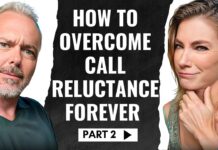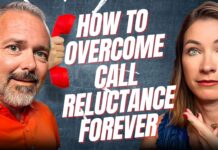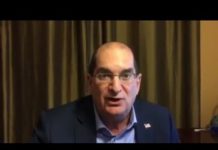Most of us put off doing things that must get done until the very last second if we ever do them at all, right?
How about that years-back college biology term paper assigned six weeks in advance that we had to pull an all-nighter to finish just to get it in on time? In your today’s real estate world, how about contacting that person who asked you a question on your website two weeks ago about a particular house that’s now under contract? How about that expired listing you noticed last month and didn’t pursue that’s now contractually listed with your chief rival agent?
In all these situations, and countless others, we knew at the time that we needed to get on these situations and we didn’t. We procrastinated. We put off doing the task we needed to do and decided/chose to go shopping or go for a hike with a buddy or listen to some music instead. In other words, we gave ourselves some temporary or short-term relief/reward for procrastinating.
A recent and hugely popular article in the New York Times talked about procrastination and why we all do it. This article claimed that procrastination is NOT about laziness and NOT about poor time management skills but instead, according to Dr. Piers Steel, professor of motivational psychology at the University of Calgary and author of The Procrastination Equation: How to Stop Putting Things Off and Getting Stuff Done and who was quoted in this article, “(Procrastination) is self harm. It’s about doing something against our better judgment.”
The problem with procrastination, as we all know, is that it tends to be a cycle, a cycle that can easily turn into a chronic habit.
To rewire our procrastination habit, “We have to give our brains a BBO or Bigger Better Offer,” according to Dr. Judson Brewer, the Director of Research and Innovation at Brown University’s Mindfulness Center, psychiatrist and neuroscientist. “We have to forgive ourselves for procrastinating.”
Dr. Brewer suggested several ways we can manage our “instant gratification” feelings that trigger our procrastination impulses.
- We can cultivate our curiosity about how our leanings toward instant gratification trigger our desire to procrastinate. In other words, what about going shopping or for a run or listening to music make us want to not do what we know we ought to do?
- We can consider doing just ONE NEXT action as a possibility of doing what we know we ought to do now. Rather than waiting to “be in the mood” of doing the task, just consider one possibility of doing the task. According to Dr. Tim Pychyl, psychology professor and member of the Procrastination Research Group at Carleton University in Ottawa, “Motivation follows action. Get started and you’ll find your motivation follows.”
- We can make temptations (like going shopping, going for a run, listening to music) more inconvenient. In other words, we can plan to make our temptations harder to do by deleting our favorite music streaming service or not having a pair of running shoes in our car trunk.
- And, of course, we can make things we need/want to do as easy as possible. As Gretchen Rubin writes in her book Better Than Before: What I Learned About Making and Breaking Habits, “…remove every, every, every roadblock.”






























